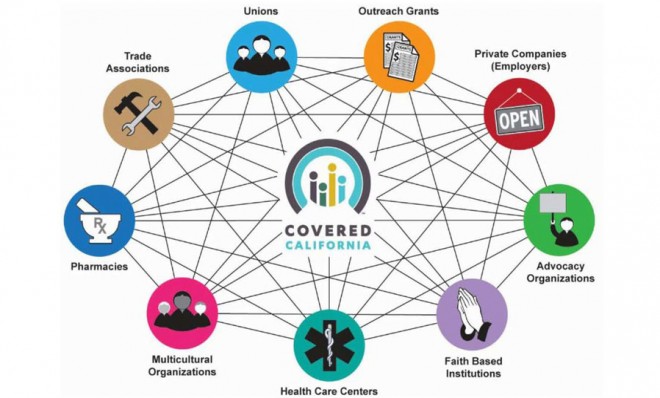California's health-care exchange: Proof ObamaCare works?
The Golden State's premiums are surprisingly low. But don't expect other states to follow suit.

A free daily email with the biggest news stories of the day – and the best features from TheWeek.com
You are now subscribed
Your newsletter sign-up was successful
The Affordable Care Act, better known as ObamaCare, has one major goal: Increasing access to affordable health care. And one of the prime mechanisms to accomplish that goal is a series of state health-care exchanges, where people without employer-provided insurance will be able to buy coverage from competing insurers.
Now, America is getting an important glimpse at that exchange system. Last week, California revealed the bids from the 13 insurance companies participating in its exchange, named Covered California.
The results are important, writes Paul Krugman in The New York Times, because while a health-care exchange has already worked in Massachusetts, critics wondered "what would happen in California, where more than a fifth of the non-elderly population is uninsured, and the individual insurance market is largely unregulated."
The Week
Escape your echo chamber. Get the facts behind the news, plus analysis from multiple perspectives.

Sign up for The Week's Free Newsletters
From our morning news briefing to a weekly Good News Newsletter, get the best of The Week delivered directly to your inbox.
From our morning news briefing to a weekly Good News Newsletter, get the best of The Week delivered directly to your inbox.
The answer: Lower-than-expected premiums, averaging $321 per month. That beats previous estimates that predicted rates of at least $450.
Prices would vary significantly by age and income level. For example, according to KQED Public Radio, a 21-year-old buying the least expensive plan would pay $216 per month or, with the most generous subsidy, only $44.
Peter Lee, executive director of Covered California, released a statement calling the announcement "a home run for consumers" that would "allow millions of consumers to enroll in affordably priced products."
The lack of sticker shock in California, which is home to 12 percent of the U.S. population, seems like a good sign for ObamaCare in the Golden State. But will it translate to the country as a whole?
A free daily email with the biggest news stories of the day – and the best features from TheWeek.com
No, says The Washington Post's Sarah Kliff, because California acts as an active purchaser that selects only the plans that meet its strict requirements. At first, 33 plans applied; only 13 that offered competitive rates and broad enough services were chosen.
"In an active purchaser exchange, health plans know that they're competing against others for the chance to access millions of customers with tax subsidies," writes Kliff. The fear before was that insurers would refuse to meet California's standards and simply be content with less restrictive markets in other states.
The lure of dramatically increased market share, however, has actually caused insurers to lower their prices — which is, as Rick Ungar of Forbes points out, "precisely what the president said would happen."
Six states work under this model: California, Massachusetts, New York, Oregon, Rhode Island, and Vermont. Others work under the clearinghouse model, which allows health-care plans under criteria that are much less strict than the rules set by California.
States could replicate California's success, argues Slate's Matthew Yglesias, but some won't for political reasons. That could have disastrous results, he says.
There are huge swathes of the country where public officials have been deliberately refusing to try to make the new law work well, and congressional Republicans are also doing their best to try to stymie implementation. Those efforts will succeed. Residents of California, Oregon, Maryland, Massachusetts, New York, and other eager implementers will see much larger gains from the new law than residents of Texas, Florida, and Alabama. And since a very large share of uninsured Americans live in those red states, this will be a real tragedy for the country. [Slate]
In states where Republican lawmakers have blocked Medicaid expansions, Krugman adds, even fewer people will have access to health care, which could add up to bad news for the GOP: "As contrasts emerge between the experience of states like California that are making the most of the new policy and that of states like Texas whose politicians are doing their best to undermine it, the sheer mean-spiritedness of the ObamaCare opponents will become ever more obvious."
The bulk of the Affordable Care Act, including the health-care exchanges, is set to go into effect on Jan. 1, 2014.
Keith Wagstaff is a staff writer at TheWeek.com covering politics and current events. He has previously written for such publications as TIME, Details, VICE, and the Village Voice.
-
 How Democrats are turning DOJ lemons into partisan lemonade
How Democrats are turning DOJ lemons into partisan lemonadeTODAY’S BIG QUESTION As the Trump administration continues to try — and fail — at indicting its political enemies, Democratic lawmakers have begun seizing the moment for themselves
-
 ICE’s new targets post-Minnesota retreat
ICE’s new targets post-Minnesota retreatIn the Spotlight Several cities are reportedly on ICE’s list for immigration crackdowns
-
 ‘Those rights don’t exist to protect criminals’
‘Those rights don’t exist to protect criminals’Instant Opinion Opinion, comment and editorials of the day